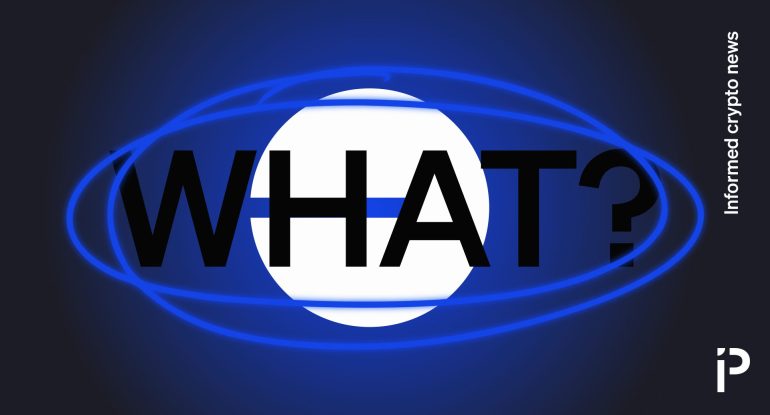Content Coins: Zora and Base Explained

The Coinbase-backed blockchain, Base, found itself in a bit of a pickle on Wednesday. Despite numerous assurances that they weren’t launching a token, well, they kind of launched a token.
Now, things get a little hazy. Depending on who you ask, Base either didn’t launch a token at all, or they launched something they’re calling a “content coin.” Yes, really.
This “content coin,” dubbed BASEISFOREVERYONE, was announced by Base in a tweet. They described it as being for virtually everyone – “coiners, collectors, traders, builders,” and even “artists, writers, musicians, visionaries, sports fans, podcasters, travelers, DeFi users, students, and so much more.” Quite the inclusive bunch!
Unfortunately for any hopeful holders, this memecoin took a nosedive, crashing a dramatic 88% in mere hours.
Here’s where it gets even more interesting. Coinbase is firmly stating that they *didn’t* actually launch a token or memecoin. Their reasoning? It was launched on a platform called Zora.
Zora is essentially a blockchain-based version of Instagram that runs on Base’s layer 2 network. It automatically turns every user post into a token, meaning these posts can then be traded and sold like digital collectibles.
A Coinbase representative clarified to Protos, “Zora is an onchain social media platform where people can post, like, and share content. And yes, posts on Zora get automatically tokenized.”
They emphasized, “Let’s be clear: Base itself did not launch a token. This is not an official Base token, and Base didn’t sell any of these tokens. Base simply posted on Zora, which, by its nature, tokenizes content.”
Read more: Coinbase claims the token Base just launched isn’t actually a token at all
Base itself also seemed to dance around the token launch, claiming that this, and any future “coins” on Zora, “are not an official network or protocol token for Base, Coinbase, or any other related product.” Trying to keep their distance, it seems.
They went on to argue that these tokens are “solely for artistic and cultural purposes as collectibles, not as investments or financial instruments.” They even likened the post to a regular post on X (formerly Twitter).
But here’s the kicker: X isn’t turning your photos into tradable financial assets every time you upload, despite the clever loophole Base’s disclaimer seems to be trying to create.
Base’s Jesse Pollak Wants to Reinvent the Memecoin Game
Jesse Pollak, the founder of Base, was busy promoting Zora and their freshly launched token, and in the process, he appeared to be trying to redefine what a memecoin even is.
Pollak introduced the term “content coins” for Zora’s tokenized posts. He argued that unlike typical memecoins, content coins come with “no expectations,” have “singular value” related to the content itself, and represent “one piece of content.” A new breed of coin, or so he claims.
However, not everyone’s buying into this new coin concept. X user @Rhynotic pointed out a key difference: with NFTs, at least the money goes directly to the creator. In this situation, there’s a real risk that early buyers and potential insider traders will just dump their holdings on later investors, pocketing the profits.
And indeed, sellers of BASEISFOREVERYONE quickly crashed the price within the first couple of hours. Meanwhile, eagle-eyed observers spotted three wallets that had scooped up large amounts of the token *before* Base officially promoted it.
The price has, however, bounced back up somewhat since that initial dramatic crash.
Read more: CHART: Solana metrics nosedive since Trump Inauguration Day
Others on social media labeled this content coin push as “major gaslighting.” Some believe Base sees “memecoin” as a dirty word. Even Alon Cohen, CEO of Pump Fun – a platform that knows a thing or two about memecoins – commented that now isn’t the right time for Base’s strategy and that their move with Zora “has resulted in hurt.”
“I’m a big believer in the idea of ‘tokenizing everything,’ but you can’t ignore the current market reality,” Cohen argued. “If you launch a coin AND have social influence, that comes with responsibility.”
Pump Fun itself popularized the memecoin craze and has made over half a billion dollars in the process. Now, it’s sparked a wave of copycats and trend followers, including Justin Sun’s Sun Pump, Binance’s Four Meme, and now, it seems, the Zora app built on Base.
After Protos reached out to Coinbase for their take, a spokesperson reiterated the disclaimer that Base had attached to their Zora post. They repeated, “Base did not launch a token,” and quoted Base’s statement from the previous day.
They explained, “Base is posting on Zora because we believe in bringing content onchain for everyone, using the tools that make it happen. Memes, moments, culture – if we want the future to be onchain, we have to be willing to experiment publicly. That’s what we’re doing.”
“To be clear, Base will never sell these tokens, and they aren’t official network tokens for Base, Coinbase, or any related product. The content we share is creative, and we’re committed to keep bringing culture onchain.”
Got a tip? Send us an email securely via Protos Leaks. For more informed news, follow us on X, Bluesky, and Google News, or subscribe to our YouTube channel.











